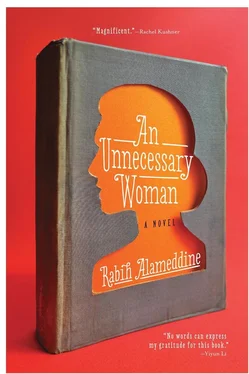It has bothered me all my life that I am not like everybody else. For years, I was able to convince myself that I was special, that being different was a choice. As a matter of fact, I wanted to believe that I was superior, not an artist, not a genius like Matisse, but unlike the rabble. I am unique, an individual, not simply idiosyncratic, but extraordinary. I considered my individualism a virtue, protecting me from collective moods and insanities, helping me float above familial and societal riptides. That gave me comfort. Except it is failing me now. Not just now. For some time, I haven’t been able to wall off my heart adequately.
“Every man guards in his heart a royal chamber,” wrote Flaubert. “I have sealed mine.”
I haven’t done as good a job as Gustave. My sealant leaks. Jagged cracks have surfaced in my walls through the years. The weeping episode at the museum may have been unusual, but it certainly wasn’t the first. They seem to occur more often these days. The walls are showing ineluctable signs of decay, cracks. I don’t recall ever crying like this before I reached my midfifties.
I wonder at what age Flaubert wrote the line above. He died a couple of years before he turned sixty.
Pessoa, more a connoisseur of alienation than even Flaubert, wrote: “I’ve surrounded the garden of my being with high iron gratings — more imposing than any stone wall — in such a way that I can perfectly see others while perfectly excluding them, keeping them in their place as others.”
What a way with words this poet has, what a grasp of images.
I am becoming one of the many things I despised when I was younger, a sentimental fool. These corroding walls can’t even defend me against the predictable emotionalism of bad movies; bad Hollywood movies starring big heroes with bigger motivations now make me cry.
You want bad? Imitation of Life with Lana Turner. That manipulative film sank its sappy claws into my heart during a recent viewing. Terms of Endearment ? I’m embarrassed to admit that it did too.
A few years ago, The Color Purple appeared on television after the news. I’d disliked the novel for its lack of subtlety, but it was a study in diaphanous nuance compared to the film, which aired on one of the tertiary Arab satellite stations, maybe Sudanese or Libyan, so even the television picture was mediocre. I couldn’t stop watching. Yes, hating myself for it, I sat through The Color Purple in its fuzzily pixilated entirety. When the fallen woman — a former prostitute, once a lesbian, now a married blues singer who used to sing in the choir — leads the sinners back to the bosom of the church, whose pastor is none other than her strict, upright father who has disowned her for her wayward ways but now engulfs her in his forgiving embrace because she enters His demesne singing (wait for it) “Maybe God Is Trying to Tell You Something,” while the gospel choir backs her up, and just in case you and I missed any of the portentous cues careening about the screen, she, the wandering daughter, tells her father, “Even sinners have soul”—when all that happened, every pretense of rationality abandoned me, and I bawled like — well, like a fallen child now redeemed.
Soppy stupid girl, that’s me.
But it’s not just movies. People make me cry as well.
Aaliya, the above, the bellower.
Fadia’s lover, Abdallah, died about fifteen years ago; his heart gave up one evening. A mutual friend called her early the next morning. She had to force herself to listen to the news stoically, as if Abdallah were simply an acquaintance of not much import. Oh, his poor children, she must have been forced to say, his suffering family. She had to wait until she was out on the landing, after the men of the building had left. She had to wait till she was alone among her friends and their coffee.
Can you imagine how lonely she must have felt when she received that phone call? Your lover has just died, your companion has abandoned you, but don’t you dare make an inappropriate sound, because your family is around. No one to touch you the way he did, no one to understand you, no one to hug you to sleep, but don’t dare allow your face to show a glint of grief. The cutting pain of feeling alone amid loved ones.
I was waiting for the kettle to boil when I heard her break. She mentioned that Abdallah had passed away, mentioned it as if in passing, and at first I was shocked that she seemed so casual about it until I understood that she was waiting for Joumana’s husband to leave with Marie-Thérèse’s. The coffee klatsch didn’t react, or at least I couldn’t hear anything from my kitchen window. Then Joumana’s husband and his prework commotion stumbled down the stairs, followed by more racket when Marie-Thérèse’s husband joined him.
The women waited for a few seconds after the men’s departure. Then Joumana and Marie-Thérèse began their comforting, and Fadia uncorked her grief. On the landing, Fadia couldn’t wail, Joumana and Marie-Thérèse had to keep their voices low, but standing at the sink with yesterday’s dishes drying in the wire rack, I heard every word, every whimper, every sob, every susurration. As you might anticipate Joumana and Marie-Thérèse deployed a litany of Lebanese condolences, still trite after so many generations: “God wants him close to His bosom,” “Time heals all,” “You still have your health,” “God will help us.” You’d think this would have been irritating. While crying together, they repeated the platitudes over and over — stupid, worthless, inconsequential, hollow words over and over, signifying nothing and definitely not full of sound and fury. It worked. They wept and grieved.
I wept and grieved in my kitchen, silently so as not to disturb them. I wasn’t able to control my feelings. I’d never met Abdallah, I’d only heard his stories while listening to the women. I felt sorry for him. I felt sorry for Fadia. Like a sentimental teenager, I grieved for a love lost.
Now, I don’t cry at the drop of a hat or at the drop of a bomb. What I’m saying is that I used to be stronger. I didn’t cry when I was a child or a younger woman. The fact that I do now, rare as it is, the fact that I’m unable to control my weeping at these infrequent times, is disconcerting. That’s all.
I’ll have you know that it’s not common.
I’ll admit that I also lost control four years ago when Joumana’s daughter announced to the coffee klatsch that she’d been accepted into a doctoral program at the Sorbonne. Amid the screeching congratulations and ululations on the upper landing, I shared their joy and wept over my gray stone countertop.
It is rare, however.
The mist of drizzle has lifted. The damp pavement and a quilt of tenuous low clouds — now comforting, now threatening — are the only evidence that rain passed this way. My legs, each trying to outpace the other, lead me along a side street. Unlike the main streets that cut the city with a butcher’s cleaver, this ancient one wiggles its hips quite a bit. It negotiates with the neighborhood, it haggles, gives and takes; rarely is it straight, it is intrinsic. This street is more old-fashioned than the bigger boulevards, more settled. I walk on the asphalt, for the pavement — more discontinuous curbstones than an actual sidewalk — is covered with parked vehicles and the Vespas belonging to the many castes of delivery boys of the city. A film of drizzle residue makes the road feel like a sheaf of tar beneath my walking shoes, which squish ever so slightly. The buildings on this street are all four stories or higher, each floor with a balcony wearing long, wide outdoor drapes that were brightly colored once, a long time ago.
A small car passes, filled to the brim with smokers; it seems to be on fire with all the lit cigarettes and the smoke. In another car a bored boy presses his face into the back window. He notices me looking and extends his tongue into the smushed self-portrait. This brief exchange amuses me, as it does him, it seems. He pulls back, whether to admire my reaction or his handiwork on the window, I can’t tell. A third car honks to make sure I don’t jump in its way, then howls past me. I move to the curb, but only for one step, since a rack overflowing with bags of potato chips blocks my path. The owner of the grocery store sits outside on a stool, earphones plugging his senses, blithely unconcerned that he and his merchandise have overflowed his store and taken over the pavement. He seems happy in his world.
Читать дальше












